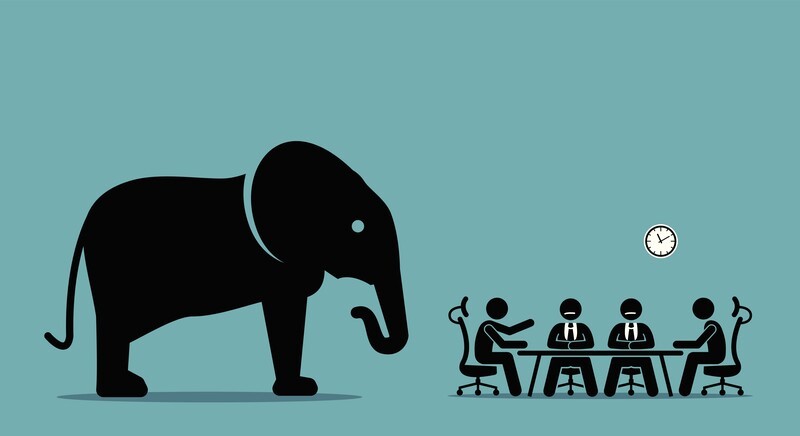To make progress in anything, it’s important to admit shortcomings. As a professor for many years, I’m pleased to say most of my students are eager to learn. In fact, they admit from the beginning they lack the knowledge of the subject and are excited to learn something new.
However, a small fraction of my students, about 5%, believe they are doing other students and me a favor by taking the class. For example, I remember a situation where a student placed the following comment in the reference page of a Finance Capstone course:

“I’m in the Finance industry, and I pretty much know all this stuff. I know there are at least 10 references required for this project, but this requirement should not apply to me given my vast knowledge of the subject. Thus, I will put only my name as a reference. Thank you.”
As one might imagine, this student received an unsatisfactory grade on the project. He wasn’t happy, but I was glad he learned an important lesson that self-improvement and progress often come from being open to learning from others.
Also, from my experience in any industry or situation, I’ve found that humility is appreciated. Even in situations where one might have extensive experience, it’s important to keep an open mind.
Denial can Stifle Progress
When denial takes place in an organizational hierarchy, the potential for danger escalates.
Blockbuster is a perfect example.
Before streaming video, many of us went to Blockbuster to rent movies. Believe it or not, renting a video was similar to checking out a book at the city library. If the video was not in the store, we were added to a waitlist!
I’m sure the younger TikTok nation finds this situation funny, and perhaps they don’t even believe it.
In the year 2000, the Blockbuster leadership team was presented with the opportunity to purchase an upstart video streaming company for $50M.
After careful consideration, they decided against the deal.
Yes … Netflix passed right through their fingertips.
Knowing the Reality
Many years ago, I heard an executive share important advice about decision-making. He noted that we need to ask ourselves the following question when presented with a situation warranting a decision:
“What’s the reality of this situation?”
To me, this meant I should avoid taking a stance until I explore all aspects of the situation. I also think we should seek guidance from others when necessary. It’s good to have unbiased perspectives, especially when the outcome of the decision is significant.
Be aware, there are times when it’s best to walk away from a deal. In other words, constantly giving the green light to all decisions can lead to problems, such as taking on too much work.
To determine the reality of any situation, one should consider both hard data and gut feeling. My recommendation is to rely on data for about 80% of any decision. The remaining 20% is based on whether or not the decision feels right at the time.
My guess is the Blockbuster leadership team relied too much on data when rejecting the Netflix deal, which means a key aspect of reality was ignored, and this executive-level mistake led to Blockbuster’s demise.
